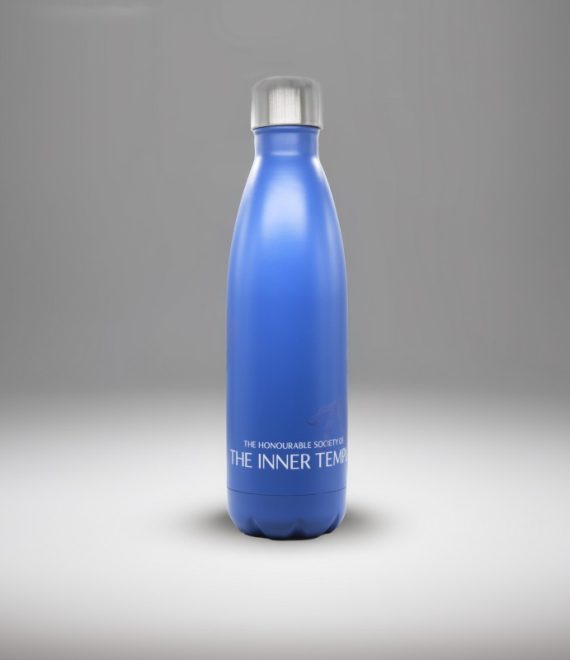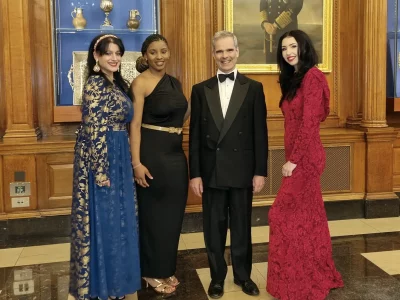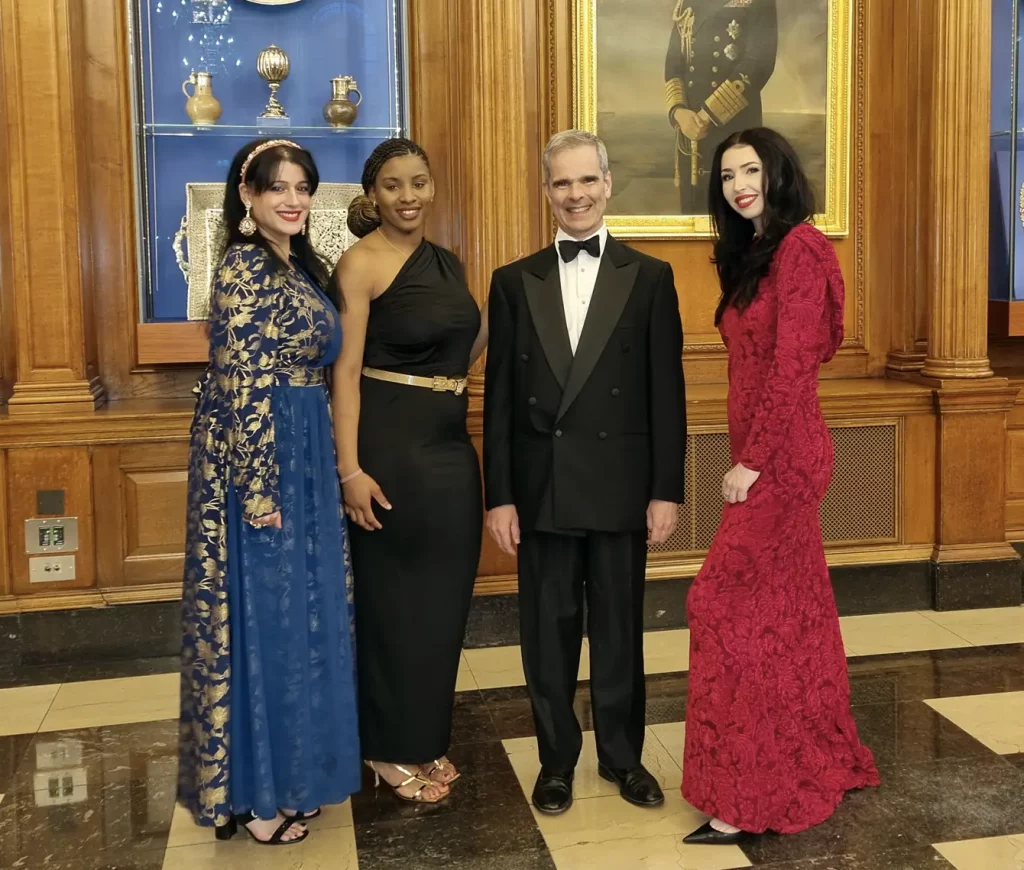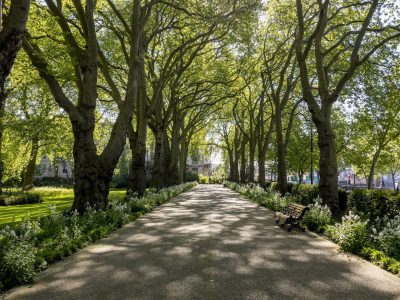

The Advocacy Pupil Prize
Advocacy is at the heart of what barristers do day in, day out. The requirement for new pupils to complete a pupil advocacy course is therefore entirely justified and, for me, most welcome. The course I attended, provided by The Inner Temple, certainly helped to prepare me for second six and being ‘on my feet’ for the first time.
The course I attended spanned several dates in October and November and was a well-constructed tour through all the elements that build one up to being a good advocate. I learned a lot, particularly about myself, and had a few misconceptions. For example, why were we being asked in the case analysis sessions to write closing speeches only? Surely that should come at the conclusion of one’s study of a case. Of course, I soon learned that if you correctly formulate your case theory, a closing speech is indeed what you will write first in preparation for trial. The discipline of then having to present my thoughts and strategies on how I arrived at my closing speech further sharpened my perception of the value of that approach and brought home the extent to which case theory intertwines all of the advocacy throughout a trial.

Next was the advocacy residential weekend held at The Berystede Hotel and Spa in Ascot. Was I alone in having absolutely dreaded the compulsory residential weekend which followed the initial sessions? Even before I realised that I would be required to roll around on the floor shouting words from Shakespeare? Thank you LAMDA for what actually turned out to be a good ice breaker with very useful lessons on presentational skills, such as voice projection and breathing, which are incredibly important parts of advocacy but are often forgotten.
Advocacy is at the heart of what barristers do day in, day out. The requirement for new pupils to complete a pupil advocacy course is therefore entirely justified and, for me, most welcome.
The actual advocacy sessions were extremely valuable. Over the two days we carried out civil and criminal advocacy including cross-examination, examination-in-chief and closing arguments. We were split into small groups of six where we would take it in turns to be the witness and our group leader played the judge. All feedback is valuable but seeing the recording of all the advocacy you have just delivered is both salutary and educational. I found the use of the Hampel Method, focusing on addressing one piece of critical feedback, really useful as it concentrated my mind on the changes I needed to make. Our tutors were also put to work delivering interesting sessions on witness handling, previous inconsistent statements and skeleton arguments which could be used in the relevant advocacy tasks we had to complete. The weekend also included a formal dinner where all the pupils and trainers got to sit together and chat about un-advocacy related things, before receiving a brilliant after dinner speech from Master John Ryder.

Applications day was the opportunity to have my skeleton arguments assessed prior to delivery of oral submissions. It gave me an insight into how to deal with bad character and summary judgment applications.

Water Bottles
The final part of the advocacy course was a mock trial held at the Royal Courts of Justice. This was the first time for many of us doing a complete trial which included a prosecution opening, cross-examination, examination-in-chief and closing speeches. We also had the choice of making applications before the trial on bad character, hearsay and excluding evidence under section 78. The opportunity to examine a youth witness and learn about the protocols which needed to be implemented was very instructive, particularly as many second six pupils spend a lot of time in the Youth Court. The mock trial lasted approximately 90 minutes and we were given feedback on all aspects of the trial. For me, the ability to conduct a full trial from start to finish was one of the most beneficial parts of the course.
I am aware that all Inns provide different advocacy courses for pupils, but I am definitely of the impression that The Inner Temple’s course, with its diverse array of advocacy exercises, has been the most beneficial to its pupils.
Niamh Sexton
When I received my pupillage offer, I made a to-do list. Completing the Pupils Advocacy Course was one of the largest tasks. Having completed the BPTC LLM in 2021, I was keen to polish my advocacy skills and I placed great weight on the course. Course A started on the same day as my pupillage, therefore I opted for Course B. In January 2024 I entered the introductory evening not quite knowing what to expect but aware that the course was considered ‘intense’. On arrival, the overarching message was that the focus of the course was on development rather than assessment. I found that to be true.
The Case Analysis Sessions:
The first part of the course involved case analysis sessions for criminal and civil cases. The brief yet informative lectures set out the importance of case theory and using your closing arguments as a road map to arguing the case.
We were divided into groups to analyse the case further. I benefited greatly from the experience and teaching in the small groups as well as the wealth of knowledge and ideas the other pupils brought to the evenings.
The residential weekend:
The course packs contained all the key information: locations, dates, times, cases and, of course, dress code. As I scanned through the requirements for the residential weekend, I was curious and concerned about the lines:
For the LAMDA session on the Friday at the residential weekend, you will need to be wearing loose clothing suitable for moving around in.
I was glad I heeded that advice as the sessions were very active and involved getting out of my comfort zone both physically and mentally. It is impossible to take oneself too seriously when crawling on all fours or reciting Shakespeare in the style of a bedtime story. These activities certainly broke the ice and created a sense of camaraderie within my group. The LAMDA session was fun, as were the games infused with core practical skills on how to use the voice, breath and diction to leave an impression. I learnt that wall plugs are the ideal size for holding one’s mouth open to practice diction; whilst I have not tried this myself, I often use the humming techniques I learnt in that session.
The non-legal presentations provided an opportunity to develop my oral skills without the pressures of an assessment. The assessments that inevitably followed over the next two days were broken up by further workshops. At times the schedule was very full, and quite similar to the housing possession lists in the county courts. It required me to prioritise my workload effectively.
The advocacy sessions themselves applied the Hampel method. The headline feedback was constructive and impactful. The immediate follow up with a demonstration from the room trainers ensured that I had an example of how to improve and an opportunity to do so the next day. For me, the video reviews showcased all uncomfortable body movements. I hope that I can keep those under control!
Crucially, the formal dinner on Saturday provided a space to hear anecdotes from a range of judges and practitioners. All shared the fear of getting ‘on your feet’. All demonstrated that fear was not a barrier to success.
Part II of the course:
The applications workshop focused on oral and written skills. The session highlighted how much judicial intervention I could expect in the county courts and how to deal with this. After the session the group was provided with a template skeleton argument that I have used during pupillage.
Finally, the mock trial was the culmination of the skills learnt thus far. We had the privilege of performing in the Royal Courts of Justice, which created a sense of excitement and realism for my forthcoming second six.
I entered the Advocacy Course expecting a month or so of rigorous assessment and challenge. I welcomed this challenge as a necessary furnace in which my advocacy skills would be moulded. To my great pleasure, it was an opportunity for development more so than assessment, filled with moments for relaxation, development and a network of barristers that understood the fear and catalysed it into success.
Vistra Greenaway-Harvey
